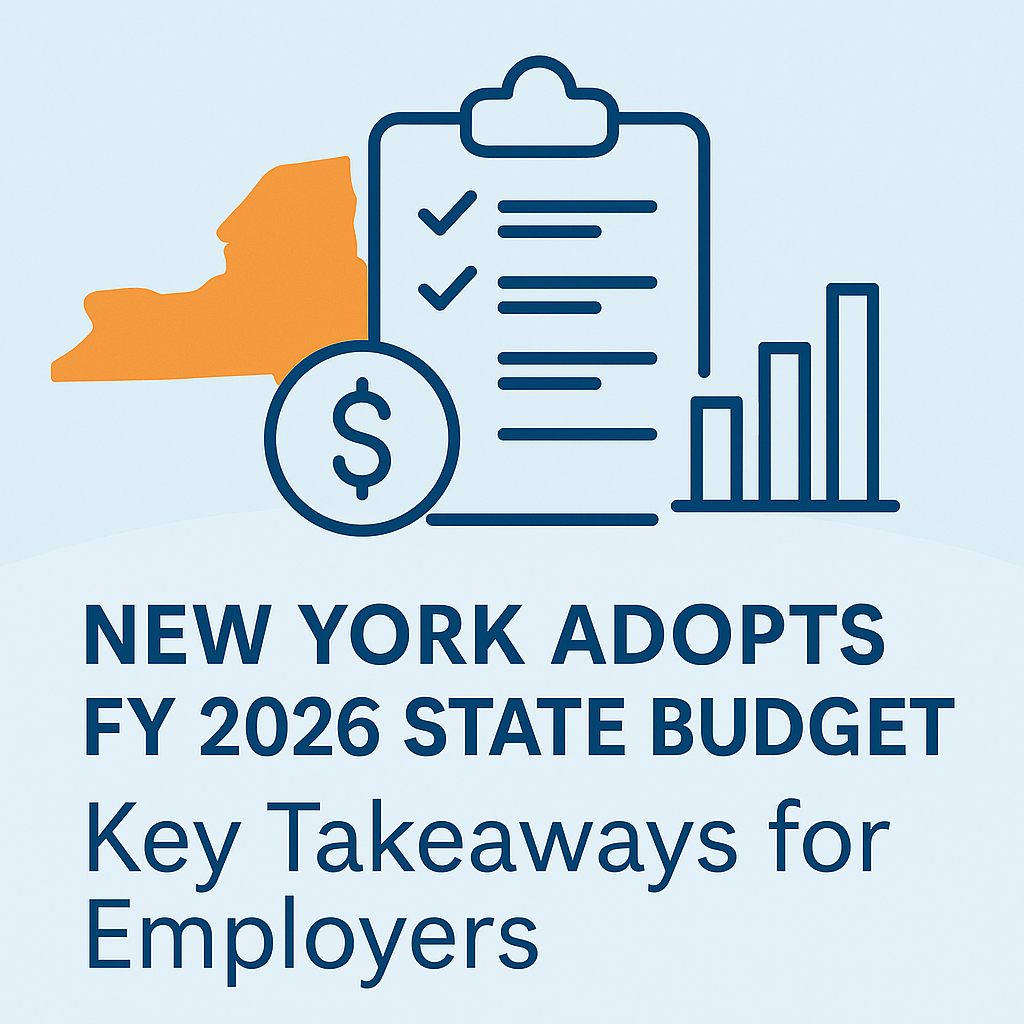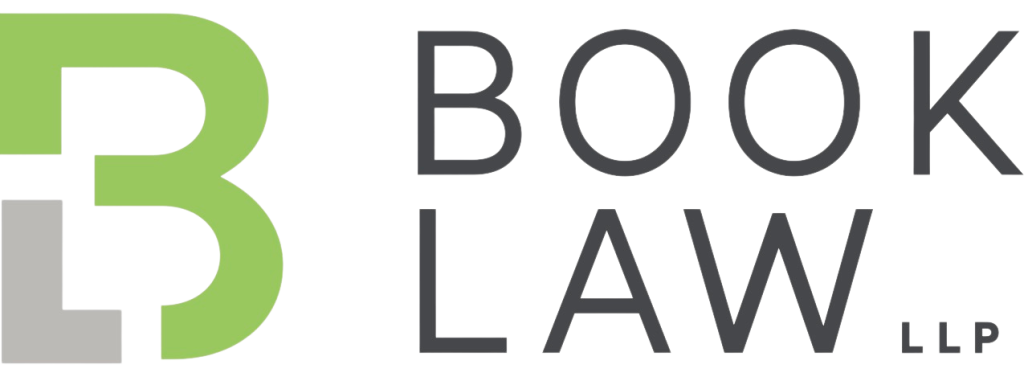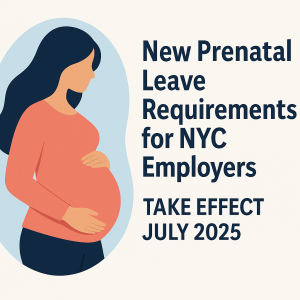New York Adopts FY 2026 State Budget: Key Takeaways for Employers
On April 28, 2025, New York Governor Kathy Hochul announced a finalized agreement on the state’s Fiscal Year 2026 Budget. While much of the budget focuses on tax relief, infrastructure, education, and public safety, certain aspects may be of interest to employers as they plan operations in New York.
Tax Changes and Payroll Considerations
The budget includes a one billion dollar tax cut for middle-class and low-income New Yorkers, which may affect employee take-home pay. In addition, the Payroll Mobility Tax has been reduced for small businesses and eliminated entirely for self-employed individuals earning $150,000 or less. Employers with affected workforces should review how these changes interact with existing payroll systems and employee communications.
Child Labor Protections and Permitting for Minor Workers
The budget includes two changes related to child labor. First, effective immediately, the Labor Law will be updated to significantly increase the penalties for employers who violate child labor regulations. Second, starting in two years, the New York State Department of Labor will be required to create and maintain a database to track the employment of minors under 18. This system will allow schools to issue working papers electronically, and employers—who must retain these documents—will be able to store them electronically as well.
Child Care and Family Assistance Investments
The budget significantly expands child care access, including a two billion dollar statewide investment and a targeted $350 million allocation to stabilize child care subsidies for thousands of New York City families. While these measures primarily support employees and families directly, many employers may benefit indirectly through improved workforce stability and availability.
K-12 School Meal Program Expansion
Employers in the education sector should be aware of a $340 million investment that ensures free breakfast and lunch for every K-12 student statewide. This investment eliminates school meal costs for many families and may reduce financial pressures on employees with school-aged children.
Higher Education Initiatives
The budget also invests $47 million to make community college free for certain adult students pursuing associate degrees in high-demand industries. This may ultimately support long-term workforce development in critical sectors.
Other Policy Highlights
The FY 2026 budget includes numerous additional provisions unrelated to employment law, including public safety, mental health, infrastructure, housing, and environmental investments. However, employers should continue monitoring how various statewide budget priorities may indirectly affect labor markets, employee benefits, and recruitment pipelines.
While the FY 2026 budget does not introduce significant labor law changes, employers are encouraged to remain informed on budget developments alongside broader employment law reforms previously enacted this year.
For questions regarding how state budget changes may impact your business or workforce planning, please contact Sheryl Galler at sgaller@booklawllp.com or Chaim Book at cbook@booklawllp.com.


